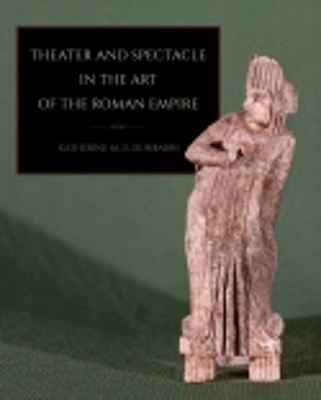Cornell Studies in Classical Philology
1 total work
Theater and Spectacle in the Art of the Roman Empire
by Katherine M. D. Dunbabin
Theater, spectacle, and performance played significant roles in the political and social structure of the Roman Empire, which was diverse in population and language. A wide and varied range of entertainment was available to a Roman audience: the traditional festivals with their athletic contests and dramatic performances, pantomime and mime, the chariot races of the circus, and the gladiatorial shows and wild beast hunts of the arena. In Theater and Spectacle in the Art of the Roman Empire, which is richly illustrated in color throughout, Katherine M. D. Dunbabin emphasizes the visual evidence for these events.Images of spectacle appear in a wide range of artistic media, from the mosaics and paintings that decorated wealthy private houses to the sculpture of tomb monuments, and from luxury objects such as silver tableware to more humble ceramic lamps and pottery vessels. Dunbabin places the information derived from this visual material into the wider context provided by the written sources, both literary and epigraphic. This allows us to understand the functions that these images served in the social rituals of public and domestic life. By explicating both the social and cultural role of the spectacles themselves and the nature of their representation in art, Dunbabin provides a comprehensive portrait of the popular culture of the period.
